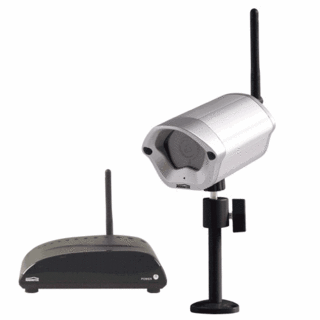CeBIT 2001, which will take place in Hannover from March 22 - 28, documents more than anything else the rapid pace of development in e-commerce.
Published:
22 March 2001 y., Thursday
CeBIT 2001, which will take place in Hannover from March 22 - 28, documents more than anything else the rapid pace of development in e-commerce. This applies both to the electronic processing of business-to-business transactions and to the development of online communications between companies and consumers. As a universally accessible platform the Internet has made it possible for suppliers and purchasers of goods and services to make contact and transact business in "electronic marketplaces." According to analysts at the Gartner Group in London, the market volume of e-commerce in Europe alone is set to grow from 35 billion dollars today to over one trillion dollars by the year 2004.
Many applications for Internet access on the move are now being developed on the basis of WAP technology (wireless application protocol). Thousands of software houses large and small now offer mobile applications for every area of life. Mobile phone users now have access to the same range of services - from banking transactions to hotel bookings - as customers who access the Internet from a PC in their home or office. According to industry observers, one of the biggest growth markets in the future will be games, which mobile phone users will be able to play by accessing the Internet on the move through a new generation of mobile networks, such as GPRS (general packet radio service) and the new UMTS (universal mobile telecommunications system).
For many consumers the Internet is already an important decision-making tool when shopping for new products. The mobile phone has become a mass-market consumer item. By 2005, according to a survey by Ericsson, the number of mobile phone users worldwide will have risen to 1300 million. 1000 million of these will also have access to mobile Internet services. At present the take-up rate for WAP phones, which offer Internet access based on the "wireless application protocol," is relatively slow, but by 2005 WAP phones are likely to be the norm. Compared with PC-based applications, where color and animation are the dominant features of the display, the possibilities for displaying information on small portable devices are still very limited. But as new broad-band infrastructures for mobile communications become available, we will see the development of applications that cater for the habits and expectations of PC users on smaller displays and allow information to be displayed in color. Prototypes of UMTS phones with these functions will be among the innovations to be unveiled at CeBIT 2001.
Šaltinis:
cebitusa.com
Copying, publishing, announcing any information from the News.lt portal without written permission of News.lt editorial office is prohibited.
The most popular articles
Software company announced new structure_ of it_s business.
more »
 Just a few weeks ago, the world's tiniest video camera was as small as a grain of rice. Today, the world's NanoEst camera is even smaller.
more »
Just a few weeks ago, the world's tiniest video camera was as small as a grain of rice. Today, the world's NanoEst camera is even smaller.
more »
 During the experiment two research groups managed to overcome a symbolic 100 TB/s optical fiber data transmission speed limit.
more »
During the experiment two research groups managed to overcome a symbolic 100 TB/s optical fiber data transmission speed limit.
more »
 Apple’s long–awaited online storage service for iTunes could be named iCloud, if only rumours are to be believed.
more »
Apple’s long–awaited online storage service for iTunes could be named iCloud, if only rumours are to be believed.
more »
 The founders of video-sharing site YouTube have bought bookmarking service Delicious from Yahoo.
more »
The founders of video-sharing site YouTube have bought bookmarking service Delicious from Yahoo.
more »
 The successful raid by hackers on Sony’s PlayStation Network is already being ranked among the biggest data thefts of all time.
more »
The successful raid by hackers on Sony’s PlayStation Network is already being ranked among the biggest data thefts of all time.
more »
 Apple has denied that its iPhones and 3G iPads have been secretly recording their owners' movements.
more »
Apple has denied that its iPhones and 3G iPads have been secretly recording their owners' movements.
more »
 Customers who have waited nearly 10 months for the white version of the iPhone 4 won’t have to wait much longer. The Great White iPhone 4 is finally here.
more »
Customers who have waited nearly 10 months for the white version of the iPhone 4 won’t have to wait much longer. The Great White iPhone 4 is finally here.
more »
 Researchers at Georgia Tech University are teaching a robot the basics of dialogue. Named "Simon", the robot has already been taught how to attract a person's attention but eventually, it's hoped he'll be able to interact and converse with humans in daily life.
more »
Researchers at Georgia Tech University are teaching a robot the basics of dialogue. Named "Simon", the robot has already been taught how to attract a person's attention but eventually, it's hoped he'll be able to interact and converse with humans in daily life.
more »
 3D? Terribly lame when it's tossed into devices as a bullet point feature. Trimensional for iPhone takes a picture of your face and maps your mug in a 3D model.
more »
3D? Terribly lame when it's tossed into devices as a bullet point feature. Trimensional for iPhone takes a picture of your face and maps your mug in a 3D model.
more »
 The European Union is to investigate whether internet service providers (ISPs) are providing fair access to online services.
more »
The European Union is to investigate whether internet service providers (ISPs) are providing fair access to online services.
more »